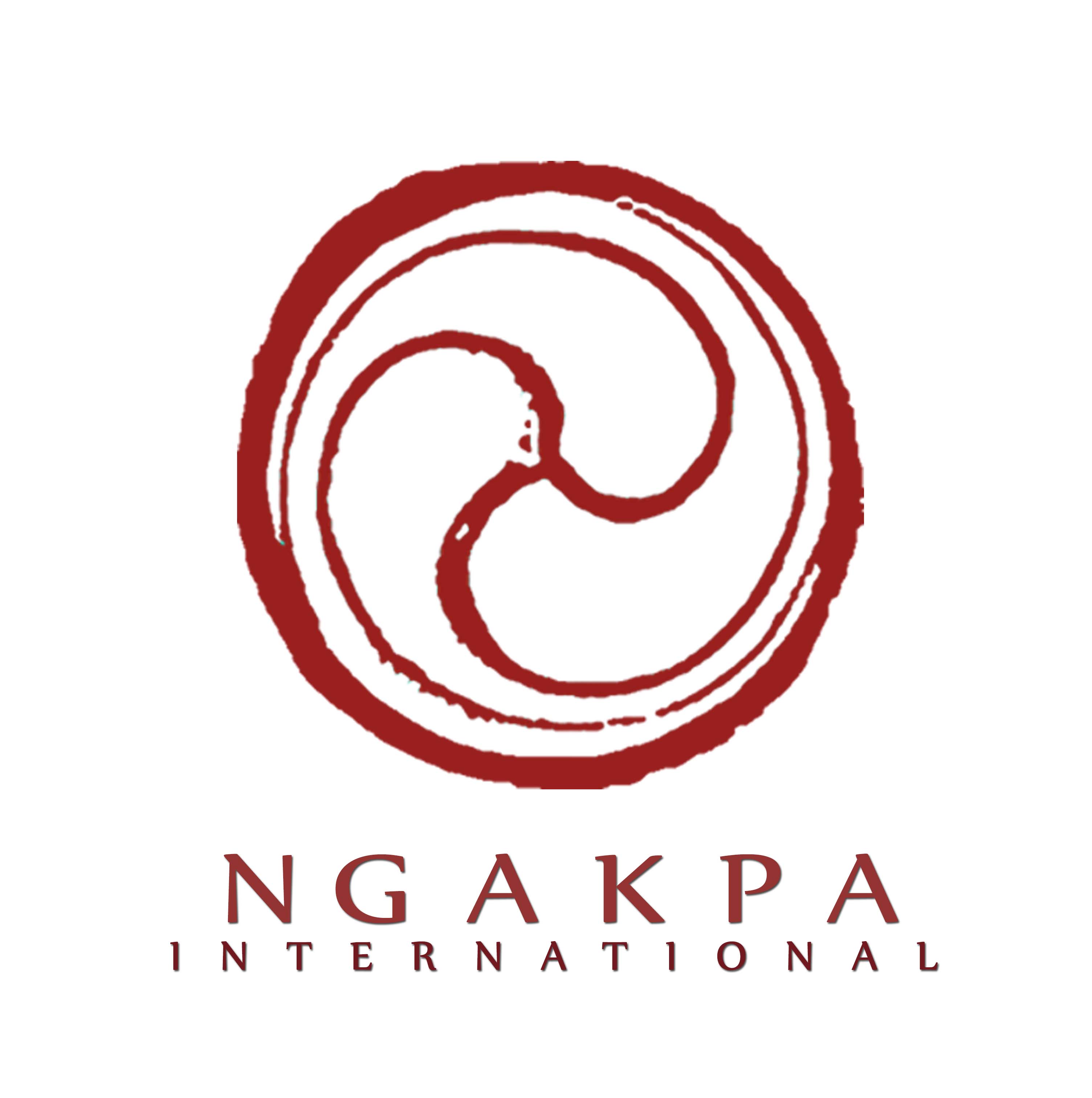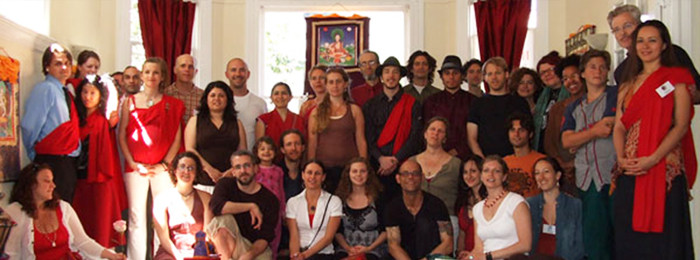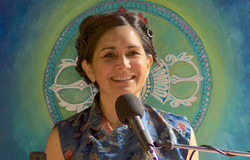- fuel your inspiration
- discover your hidden depths
- immerse yourself in dharma
- connect with other Buddhists
- cut through fictions to see yourself as you really are
- understanding your mind and emotions
- gain support for ongoing practice and study
- clarify the meaning of esoteric Buddhist philosophy, terms and rituals
- engage Buddhist philosophy to grapple with the issue of teacher-student relationships in Vajrayana
- leave behind the maze of information and have a direct encounter with the heart of Buddhism
Click Here to Enroll
What is Vajrayana?
Vajrayana is a Buddhist practice of utilizing our life experiences as the fuel for the path. Vajrayana works with the experiences we are already having in order to cultivate a wakeful clear presence and connect with goodness in ourselves and others.
In Vajrayana ordinary life experiences become the focal point for our training. Vajrayana refers to a path of “transformation” of these experiences. It is the transformation of thinking, experiencing emotions, embodied experience, visualization, identity, dreams, moments of crisis and dying into opportunities for connecting with intrinsic wisdom.
The view of the world in Vajrayana is that innate wisdom and potential for awakening is always present. Through Vajrayana meditation practices and Buddhist philosophy, we train to see the world with a “pure view,” an openness to connect with what is good, uplifted, the positive potential. Simultaneously, it is a training to wakefully address subconscious material, habitual neurosis and conditioned scripts within the framework of Buddhist resources for training the mind.
The term “Vajrayana” is used in the Nyingma lineage to refer to Buddhist Tantra and Great Perfection teachings (Dzogchen). The latter refers to a class of Buddhist teachings that have been practiced by non-monastic, non-celibate practitioners, yogis, tantrics and lay people who lived dynamic lives. Vajrayana includes philosophy, visualization, mind training, body-mind yogas, meditation practices and rituals.
Vajrayana, like all of Tibetan Buddhism, emphasizes the importance of relationships. The relationship between the teacher and student, between the student and the lineage history, between the community of people who practice and between the student and their world. These relationships present a complex and dynamic landscape through which the lived meaning of the teachings can be explored. Therefore a personal connection with others who teach and practice Vajrayana is an important ingredient. No book or class can substitute for that. However those experiences can be supported by a strong foundation in Vajrayana views, history and the context of the practices. The Vajrayana Training is offered to provide a foundation and a ground to encounter Vajrayana with understanding, to meet its teachers, adherents, rituals and practices with a sense of their purpose and context.
For advanced trainings in Vajrayana – Tibetan Yoga and Dzogchen, learn about the Ngakpa Seminary
Web-class once a month
As Buddhism has come to North America, ritual initiations (empowerments) have been widely available, but education in Vajrayana has not. Likewise, exposure to Lamas has been available, but in-depth personal training has not been accessible to all but a few people. The Vajrayana training offers an opportunity to bridge these gaps, offering an orientation to the views, rituals, symbols, practices and core principles of Vajrayana Buddhism.
Approaches to the Vajrayana teachings of Buddhism vary widely, with vigorous debates on the topic throughout the history of Tibetan Buddhism. While some schools reserve Vajrayana for advanced stages of the path, the Ngakpas (Buddhist Yogis) of the Nyingma lineage practiced Vajrayana as the core of the path from start to finish, approaching the entire spectrum of Buddhist vehicles from the view of Dzogchen and the methods of the inner yogas. The Vajrayana Training continues this tradition, offering education in a non-sectarian environment that may benefit students of any school of Tibetan Buddhism.
The course is taught by Pema Khandro whose background of growing up in North America has provided her with an understanding of Western culture and learning styles. Thus the Vajrayana Training offers advanced esoteric teachings in a modern format. She engages straightforward language with a supportive teaching methodology that offers lecture, question and answer, slide shows with outlines of the material, recordings of the class for viewing and reference and the support of an assisting instructor who will follow up with one on one conversations after each class. The training is given in the accessible format of live web-cast teachings to keep Vajrayana accessible despite the demands of modern life.
Essential Ingredients & Disclaimers
Vajrayana tradition maintains the crucial importance of the student’s encounter with a teacher in the context of ritual “empowerments,” initiations where a kind of inspired transmission and inspiration is conveyed. For this reason it is considered impossible to ever fully encounter Vajrayana in books or on one’s own, it is a path that emphasizes the relationship between the student and teacher, the experience of ritual and connection with other practitioners.The Vajrayana Training course does not necessarily replace those elements but it can support it.
Whether or not transmission of Vajrayana practices can or cannot be given over the internet is a matter of debate. Some Lama’s give empowerments over the internet these days, while others do not. However, what is clear after the last four years of this course, and courses like it, is that high quality education and learning can take place through internet courses. Likewise, so can support for ongoing inspiration, commitment and training.
The Vajrayana Training is not a series of “empowerments.” Empowerments are ritual initiations into specific Vajrayana meditation practices where one trains to visualizes oneself as a particular Buddha and experience oneself as integrated with one’s buddha nature through the mantra and imagery of a specific buddha from the tradition. These practices are called deity yoga or yidam practice.
The only initiation connected with Vajrayana Training is connected to Ngondro, the foundational practice that everyone begins with in Vajrayana – and the practice that is the core of the meditative tools that one trains by.
In modern Buddhistm, access to empowerments are generally more available than in-depth Vajrayana education. So the Vajrayana Training offers that education. It trains students to recognize the context, philosophy, perspectives, questions and details of how to make use of and make sense of Vajrayana as a whole. This material is equally important to the Vajrayana path. Vajrayana has always been more than just empowerments and other rituals. It has a philosophical view, an understanding of conduct in terms of Buddhist tantra and it has a rich history and lineage.
Furthermore, ritual itself can only be fully accessed through some training in Vajrayana as a symbolic language, a kind of poetry of being where we learn to see the world in terms of wisdom, compassion, sanity and presence. Therefore Vajrayana Training offers education above all else. Students are encouraged to seek empowerments and develop personal relationships with Lamas or enter Ngakpa Training with Pema Khandro for going further in the Vajrayana Buddhist path.
10 Classes per year – 30 Classes Total
Vajrayana Training is offered in modules with ten classes per year and six classes per module. During the months of November and December or December and January there are not classes, instead this is considered a practice period.
One module of study explores the key aspects of Tantric Buddhism, and makes sense of its vast array of ritual, art, philosophy, and esoteric yoga.
Another module offers initiation, training and support in Ngondro practice, the primary meditation practice of Vajrayana practitioners of all traditions. Ngondro reveals the dynamic, inspiring, visionary and artistic dimensions of Buddhist meditation, transforming the practitioners sense of self, world and experience itself.
A third module focuses on key elements of Buddhist Philosophy and the world according to Vajrayana, defining key terms such as emptiness, from the vast view of Dzogchen and the Nyingma Inner Tantra.
A fourth module explores the controversial and essential topic of the teacher – student relationship in Tibetan Buddhism, in Vajrayana and in modern contexts.
The courses are non-sequential and can be taken in any order. In web-classes, meeting once a month, students will discover how to understand the pivotal principles of Tibetan Buddhism, make sense of empowerments, and go deep into understanding oneself, one’s own world, and how to make better sense of one’s own mind.
This Unique Training Covers:
- Guidance and Support in accomplishing Ngondro, the unique foundational practice of Tibetan Buddhism.
- Study of the schools of Buddhism, with special focus on the unique non-monastic Nyingma lineage.
- Understanding of the symbology of Buddhist Tantra.
- How to enter into the path of Buddhist Tantra and Dzogchen, and much more.
Vajrayana Training – Course of study:
Module One
- Four Thoughts
- The Three Turnings
- Nyingma Lineage
- Vajra Guru Mantra
- Vajra, Bell & Drum
- Making a Shrine
Module Two
- Bodhichitta
- Bodhisattva Vow
- Tantric Refuge
- Samaya
- Ngondro
- Emptiness, Self, No-Self and Identity in Buddhism
Module Three
- Intrinsic Purity: Tantra, Conduct & the 5 Precepts
- Savoring the Flavor of Experience: Tantra, Conduct & the 5 Precepts
- The Inevitability of Death and the Vow to Help Beings: Tantra, Conduct & the 5 Precepts
- 2 Truths & the Lie of Duality: Tantra, Conduct & the 5 Precepts
- Ethics in an Ambiguous World: Tantra, Conduct & the 5 Precepts
- The Five Precepts in Sutra & Tantra
Module Four
Teachers, Students, Masters & their Disciples; a history and philosophy of the Vajra Relationship in Tibetan Buddhism.
How we do we understand issues of lineage, authority, power and tradition in the era of disillusionment with authoritative abuses of power? What is the relationship between individual spiritual health and community life? How do spiritual intelligence, independence, personal empowerment and psychological health factor into to the path?
-
How do we draw on tradition in a time when we have loss of faith in institutions? How can we engage Buddhist wisdom while remaining free from the dogma and fundamentalism that many people associate with religion? What are Buddhist perspective on these issues? How does the modern context change these issues? What resources does Buddhism offer to grapple with abuses of power and ethical violations?
-
How do we heal from spiritual traumas? What are ways to avoid pitfalls associated with the working a teacher and the complex mixture of spirituality, authority and power? What are possible ways to deal with breeches of truth and violation of ethics in the spiritual context?
-
What are views of the teacher student relationship in Vajrayana and how does this differ from other asian religious traditions? from western traditions?
-
Do you even need a teacher? If so how do you know you are ready? What does it mean to be a student and what should you expect from a teacher?
-
What the the different kinds of teacher-student relationships in Vajrayana history? How do you evaluate a teacher?
-
What if the relationship breaks down? Is it possible to dissolve such relationships without breaking vows?
This is the fourth in five sections of the Vajrayana Training. It incorporates historical accounts of the teacher student relationship and Buddhist debates on these matters along with important questions that emerge from the modern context. Along with lectures and dynamic discussions, Pema Khandro shares her heart-felt reflections about the student-teacher relationship from the perspective of both student and teacher in the post-modern age.
Module Five
The fifth module explores Buddhist philosophy from the point of view of developments in Nyingma Vajrayana and Dzogchen. Each time this module is taught, a different text or topic is studied. While many people often assume that all Buddhist philosophy has the same perspective on fundamental topics such as non-self, emptiness, karma and the goal of the path, the major quality of Tibetan Buddhism is diversity. Understanding these differences can help to supply students with a wealth of support in their own pursuit of the big questions on the nature of reality and the nature of mind.
Course includes:
- Monthly one hour LIVE training class with Pema Khandro via webcast, You also receive the recording via email. The class is 60-90 minutes and includes question and answer time. There is no class in December.
- Optional monthly sessions with a Teaching Assistant via phone or Skype.
- Membership in N.I. with the privilege of discounts, newsletters, and access to private meetings with Pema Khandro during public retreats.
- Member Events and opportunity to join Sacred Service.
Instructor Support:
The supportive group environment allows for engaging with practitioners of Tibetan Buddhism, which fosters the experience of genuine and long-lasting change. Working monthly with the teaching assistants, will help answer your questions and support your integration of this life-changing information that is rarely explained in depth.
Meets once a month Saturday 8am PST / 11am EST
See our calendar of events for dates.
Enroll in Vajrayana Training
- Pre-requisite – Skype or Phone Interview with Pema Khandro
- Click Here if you Are Interested in Enrolling
- Tuition: $108/month.*
- Classes are ongoing with rotating Modules
- Students may enter the training at any point, with a six month commitment
- Vajrayana Training participants are automatically given Vajrayana Training Member status for as long as their enrollment is current, making them eligible for other events or classes that may be offered for VT members.
For more information about Vajrayana Training or Ngakpa International’s Membership program, please contact Membership@Ngakpa.org.
*Due to the generosity of participants and the regular contributions of patrons, friends and members, all classes have been able to be offered while maintaining Pema Khandro’s wish that no one would turned away for lack of funds. To learn about the financial aid program and scholarships – inquire at info@ngakpa.org
Further Disclaimers: The Small Print On What This Course Is Not
Pema Khandro offers a straightforward, warm, light-hearted, down to earth educational approach to Buddhist training.
If you are looking for special transmissions, special powers, psychic abilities and so forth, this training (and all her courses) would be incompatible with your goals. No “transmissions” are given in this course. It is simply educational in nature.
If your goal is to become enlightened in terms of supernatural abilities, magic powers and specialness, this course would be incompatible with your goals. Pema Khandro’s teaching emphasizes Dzogchen views of human life which emphasize ‘naturalness,’ ‘authenticity,’ and a general ambiance of basic sanity. The goal is to study Buddhism for the purpose of being a good human being, leading a dignified, satisfying life and acting altruistically to help our world.
Pema Khandro’s teachings emphasize mainstream Buddhist ethics. Therefore if you are looking for neo-tantric teachings which are western originated teachings focused on sexuality, then this training and our courses are also incompatible with your goals. Pema Khandro is married. She teaches about the importance of harmonious, respectful and monogamous relationships between men and women.
If you are interested in learning about topics such as Buddhist philosophy, the nature of mind, the source and workings of thoughts and emotions, Buddhist perspectives on karma, transforming one’s state of being through contemplative practices, perspectives on the purpose of life, questions about birth/death, meditation methods, pragmatic approaches to health, Buddhist history, Buddhist stories and culture, the meaning behind Vajrayana practices and rituals, then Pema Khandro’s courses would be compatible with your goals.
Our community does not discriminate against individuals based on sexual-orientation, race, ethnicity, ability, gender or religious background. We believe everyone has equal amounts of Buddha-nature and that diversity is beautiful.


